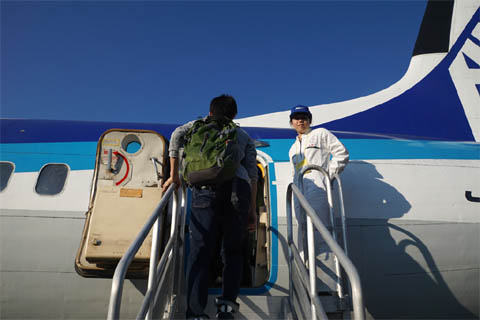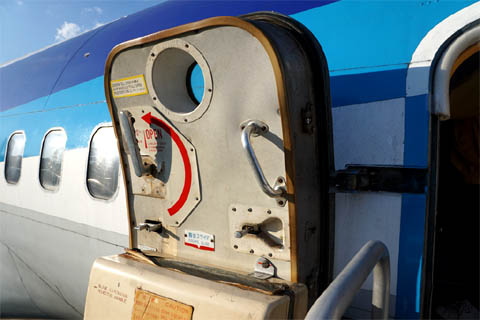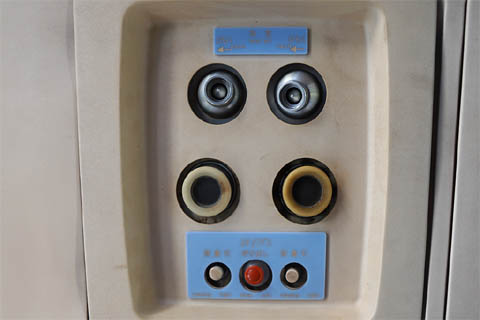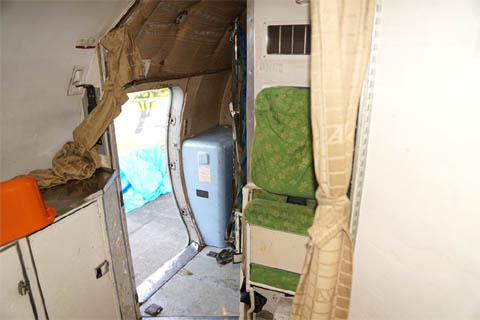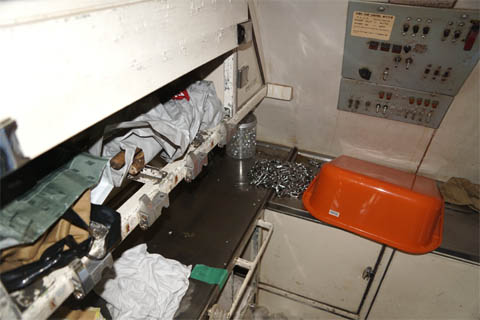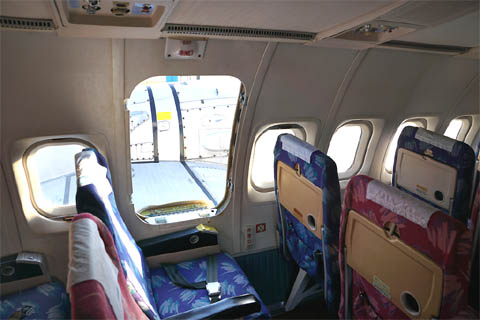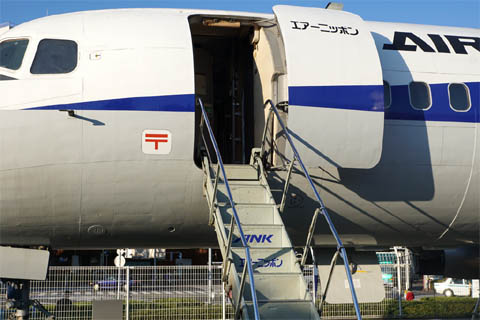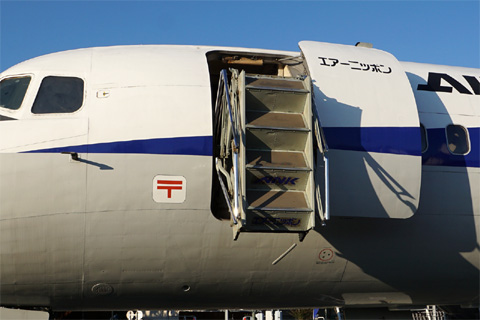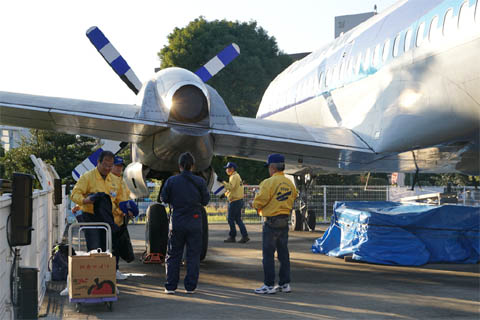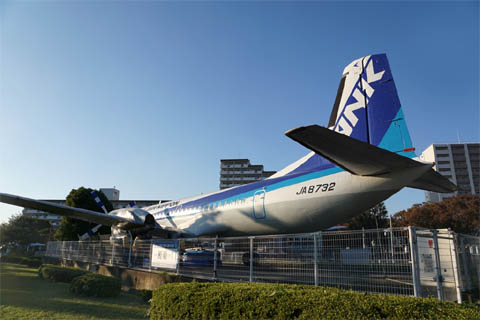YS-11A-500R (JA8732)
It is an introduction of YS-11 that is exhibited in front of the station.
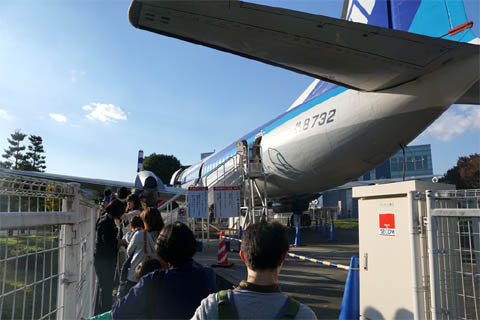
Today is November 14th, the day of the people of Saitama Prefecture. Every year on this day, you can enter the plane of the YS-11. YS-11A-500R (JA8732) is exhibited in front of the Kōkū-kōen Station in Japan.
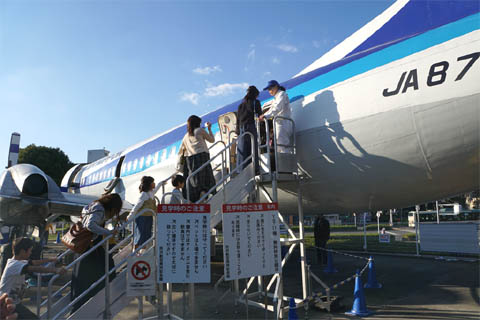
This aircraft was operated by Air Nippon. It is preserved with the painting of the active duty even now. Today, I will board the aircraft from the rear door, which I usually do not use.
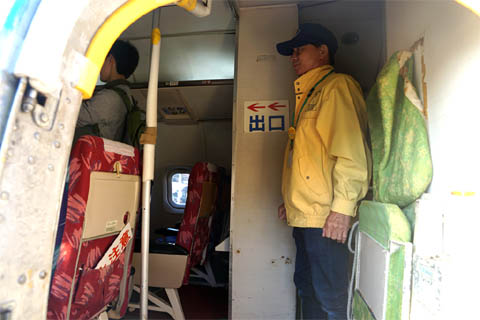
The rear door is made somewhat smaller than the front door because it is not usually used as a boarding gate. Get in front of the aircraft with the head bent so as not to hit the ceiling.
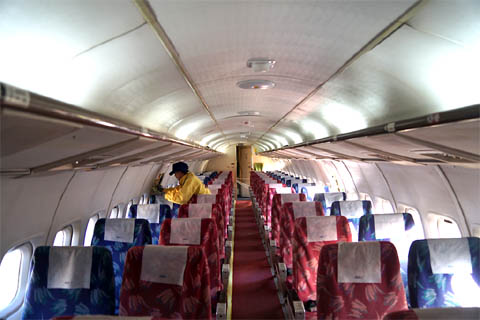
This is the cabin of YS-11. The aircraft cabin is in very good condition. The seating arrangement is 64 seats in 16 rows of 2 seats per side.
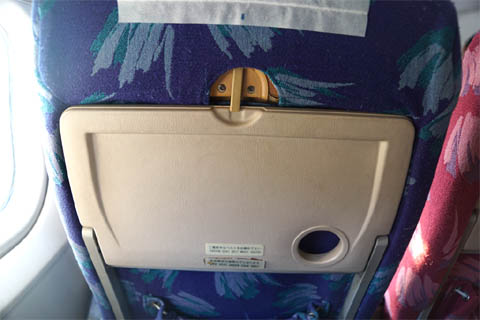
The seat of YS-11 is quite old. The table has a hole for putting a drink. There is no hole in the table of the current aircraft now.
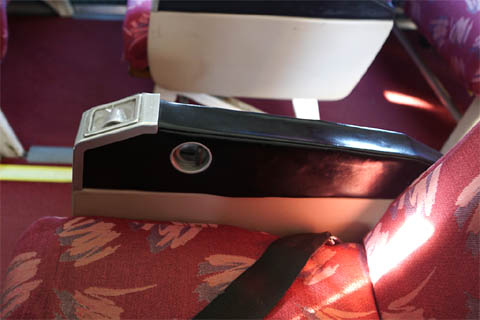
It is this armrest that feels very oldness. The armrest of an old plane had a small openable ashtray. The switch for recliner was not a button type, it was a lever type.
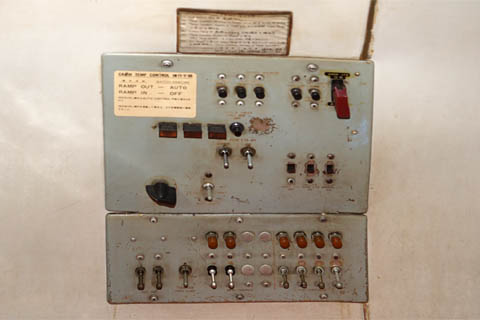
The galley wall has a cabin air conditioning and lighting control panel. The switch is very old and rusty.
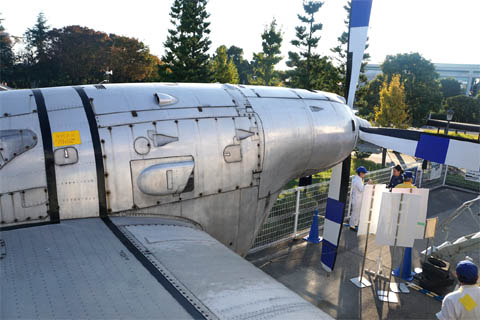
It is a propeller and turbo prop engine of YS-11 seen from the emergency exit. The shape of the engine cowl is very old. There are a lot of protrusion that cannot be found in current engines.
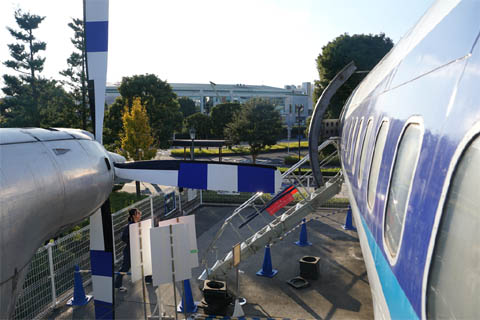
I tried to take a picture of the front of the aircraft with the camera from the emergency exit. Unlike railways, airplanes do not have windows, so there are few opportunities to shoot at such angles.
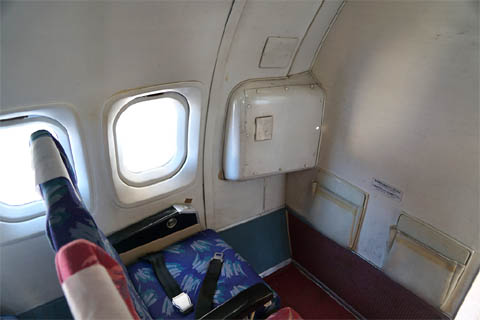
This is the front row seat. The front row seats have no feeling of pressure because there are no seats ahead.
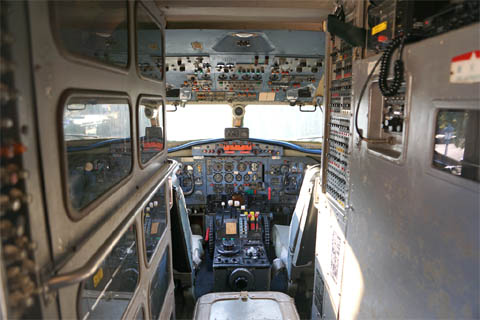
Enter the cockpit. The YS-11, which is exhibited at the Aviation Science Museum, can not enter the cockpit. However, this YS-11 can enter the cockpit.
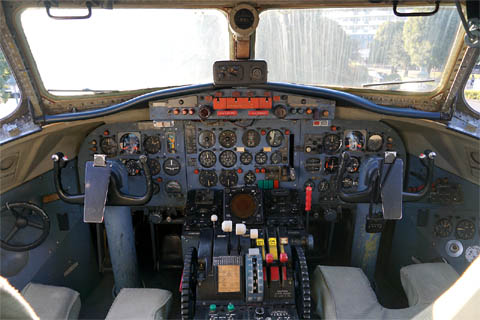
It is an image of the cockpit of YS-11. The cockpit is slightly different from the first YS-11 (JA8611) exhibited at the Aviation Science Museum.
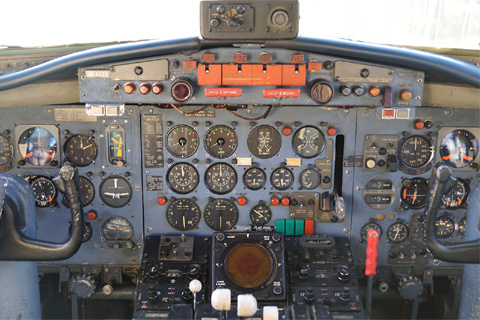
The first is the front panel of the YS-11's cockpit. In a standard aircraft, the placement of this instruments is almost the same in the captain seat and the deputy captain seat. However, there is a difference in the case of YS-11. There are Speed Indicator, ADI (Attitude Director Indicator), Barometric Altimeter, RMI (Radio Magnetic Indicator), HSI (Horizontal Situation Indicator), Bank and Turn Indicator, Clock and ADI (Attitude Director Indicator) in order from the upper left. The placement of this instrument is almost identical to the current aircraft.
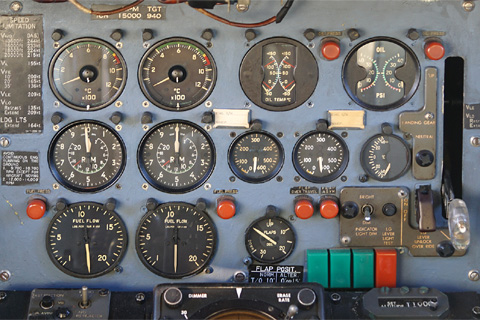
Next is the center panel. The Power Instruments here are in the same arrangement as the current aircraft. There are EGT (Exhaust Gas Temperature), Oil Temperature Gauge, Oil Pressure Gauge, RPM (Revolution Per Minute), Water Methanol Check Pressure, Water Temperature Gauge, Landing gear lever handle, FF (Fuel Flow) and Flap Angle Gauge) in order from the upper left. At the top left are a table listing the limit speeds by altitude, VA (Maneuvering Speed), VFE (Maximum Flap Extended Speed), VLE (Maximum Landing Gear Extended Speed) and VLO (Maximum Landing Gear Operating Speed).
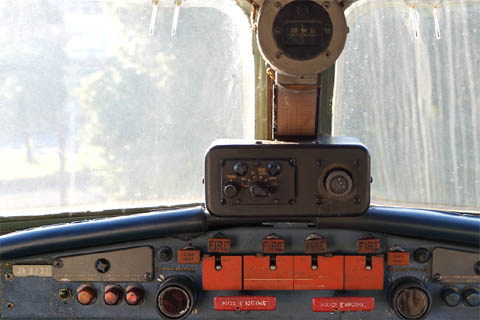
The current aircraft has an autopilot mode control panel in front of the cockpit, but the YS-11 does not. Instead, an engine fire extinguisher was installed. I think that the instruments placed on it are wireless devices, but the details are unknown. The circular device above is the compass.
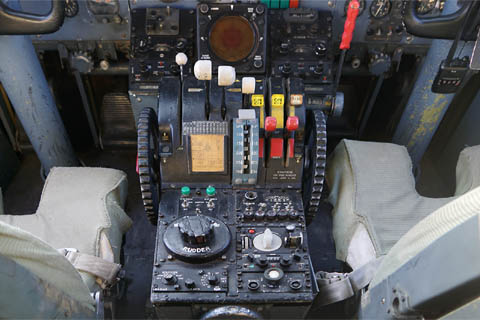
Next is the equipment between the captain seat and the deputy captain seat in the cockpit. The radar is at the center, the radios are on the left and right, and the levers in front of them are the stabilizer trim wheel, speed brake, throttle lever, and flap handle in order from the left. In the front, there are rudder trim, fuel control system, etc.
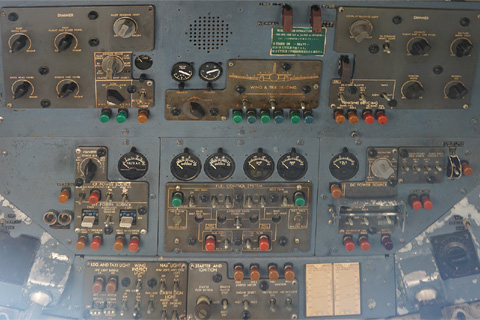
Next is the overhead panel. The overhead panel of YS-11 is very simple because there is no circuit breaker panel. From left to right, there are a Dimmer, Deicing System, Power Control Unit, Fuel Control Unit and Ignition Switch.
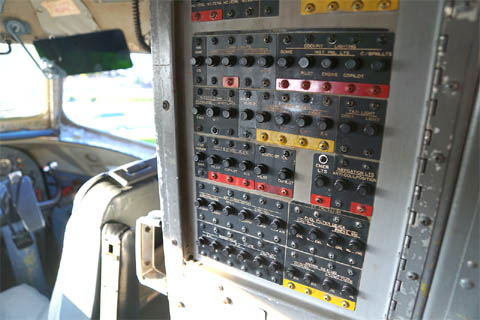
This is the YS-11 Circuit Breaker Panel. The Circuit Breaker Panel of standard aircraft is located next to the overhead panel, but in the case of the YS-11 it is located behind the copilot seat. The picture on the left shows only the lower half, but actually there is the upper half.
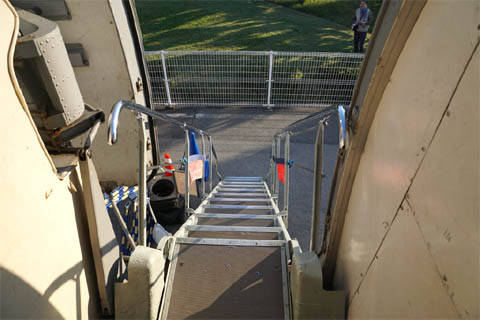
I got out of the aircraft from the front door. After this, I will introduce the boarding ladder of this YS-11.
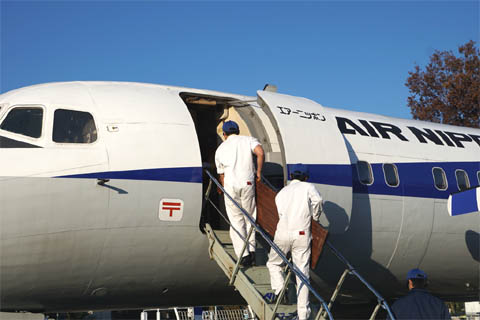
Today's event ends at 15:00. As I was the last visitor, as soon as I went out of the plane, the withdrawal work of the staff started.
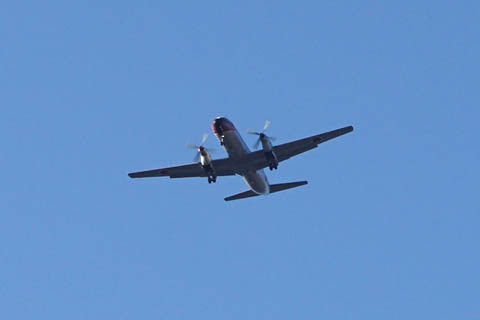
YS-11FC Flight Check Squadron aircraft belonging to Iruma Air Base passed over the event space.
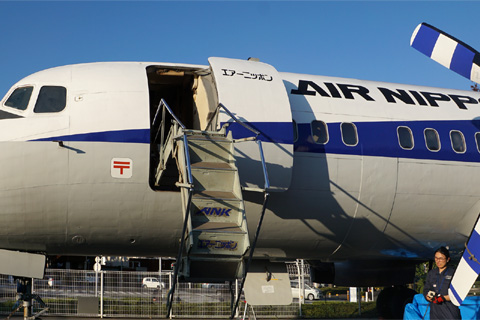
When the staff operates the remote switch, the boarding ladder of YS-11 will be automatically collapsed. It is an airstair built into an aircraft. Current aircraft use the Boarding Bridge, so there are very few airplanes equipped with "Airstair".
